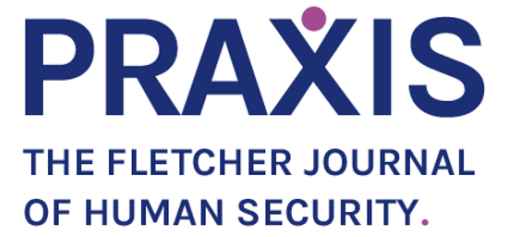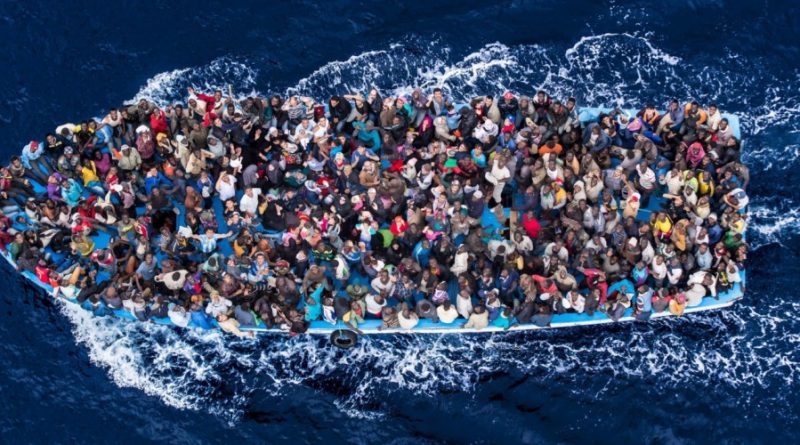Mediterranean Corridors: Tracing the Footsteps of Organized Crime Groups (OCGs) in Migrant Smuggling
Mediterranean Corridors: Tracing the Footsteps of Organized Crime Groups (OCGs) in Migrant Smuggling
By: Aristeidis Bouras
The Mediterranean Crossroads: A Troubled Sea
Historically a nexus of cultures and commerce, the Mediterranean has transformed into a turbulent route, marred by the activities of Organized Crime Groups (OCGs) orchestrating migrant smuggling. These groups exploit geopolitical vulnerabilities and prey upon the desperation and hope of those seeking a safe haven or new beginning. The journey across the turbulent sea is fraught with risks, from treacherous waters to the very hands of the facilitators promising passage. Crossings have recently increased, with over 102,000 individuals attempting to cross from Tunisia to Europe, notably Italy, in 2023 alone, up 260% from the previous year. The Mediterranean, known for its historical significance, now witnesses the plight of thousands seeking safer shores, only to encounter dangerous journeys.
Shadow Networks: Their Modus Operandi (M.O.) and lucrative trade
At the core of these perilous migrations are the OCGs, known for their sophisticated and adaptable networks. These structures are wide-spread and well connected, demonstrating resilience against law enforcement efforts. Their modus operandi is as diverse as the groups themselves, leveraging both age-old tactics and modern technology to orchestrate movements of people across borders with alarming efficiency. The smuggling routes, primarily the Central via Italy, Eastern via Greece, and Western Mediterranean via Spain, present unique challenges and patterns of movement, yet all are linked by the shadowy and incredibly lucrative operations of these criminal networks. Migrant smuggling is recognized as a highly profitable global criminal activity, generating substantial profits that fuel other illegal activities. In one notable case, an organized criminal group smuggled nearly 300 people into Austria over a five-month period via the Central route, generating profits of over 3 million USD. These groups leverage various payment and transfer methods that are not easily traceable, including the “Hawala” system, an informal money transfer system used widely across the world.
Overlap with Human Trafficking and Possible Ties to Terrorism
Beyond their widespread migrant smuggling schemes, OCGs are also frequently implicated in human trafficking. This abuse can extend beyond the perilous journey, forcing individuals into labor or sexual exploitation and blurring the lines between smuggling and trafficking – creating a multifaceted criminal enterprise. While both practices have similarities, they are distinct: migrant smuggling typically involves the illegal, but consensual movement of people across borders, often viewed primarily as a migration issue. In contrast, human trafficking specifically aims at exploitation—sexual, labor, or otherwise—often through coercion, and is regarded as a human rights issue. This distinction affects how victims are perceived and treated; trafficking individuals are seen as victims in need of protection, whereas smuggling individuals are often treated as clients of a service. However, there are cases in which migrants promised safe passage may find themselves entrapped in a cycle of exploitation, reducing them to commodities in a market of abuse and enslavement, and highlighting the multifaceted criminal enterprise that straddles both smuggling and trafficking. Moreover, the chaotic nature of smuggling routes provides cover for traffickers operating under the guise of aiding migrants. Also, concerns have been raised about smuggling networks in the Mediterranean potentially being utilized by terrorist groups, who might take advantage of regulatory gaps to fund their activities or covertly transport operatives. While the evidence is not definitive and the extent of such connections is debated, the profitability of smuggling operations presents a risk that could be exploited for purposes that may include the support of terrorist agendas. Such connections introduce additional layers of complexity to the challenge and underscore the critical need for robust international cooperation and intelligence sharing. The goal for competent authorities and policymakers should not only be to disrupt these criminal networks and the harmful activities that occur along migrant smuggling routes but also to protect the victims at the intersection of these crimes.
Dire Journeys: Violence, Exploitation, and Loss
The human cost of these smuggling operations is devastating. In 2023, over 2,500 migrants died or went missing in the Mediterranean, underscoring the perilous nature of these journeys. Migrants face inhumane conditions during the journey, including overcrowding, insufficient provisions, and a lack of medical care. Many are subjected to violence, exploitation, or even death at the hands of the facilitators. The relentless loss of life and the shadow of exploitation cast by these smuggling networks reveal a tragic narrative of despair and violation of human dignity that echoes the critical need for a deeper understanding and proactive engagement from all sectors of society. It is a stark reminder that behind the statistics are individual stories of hope and hardship, compelling a collective moral imperative to forge paths toward safety and respect for human life.
The Role of European and International Agencies
In the face of this transnational challenge, the role of Europol, Frontex, Eurojust, Interpol, and the United Nations Office on Drugs and Crime (UNODC) is critical. Europol aids in gathering intelligence and coordinating efforts to dismantle smuggling networks across member states. Frontex, responsible for border management, plays a key role in monitoring maritime routes and preventing mass irregular crossings. Eurojust enhances these efforts through judicial cooperation, facilitating the prosecution of transnational crimes. Adding to these efforts, Interpol extends its global reach to facilitate international police collaboration, employing its vast databases and communication networks to identify and capture suspects involved in trafficking and smuggling. Finally, the UNODC complements these efforts by training officials and providing research and policy reform tools to strengthen the international response against these networks. The collaborative endeavors of these agencies symbolize a concerted international commitment to uphold justice and safeguard human rights, aiming to weave a tighter net of security and support that spans borders and legal jurisdictions.
Notable Cases
In March 2023, a significant breakthrough occurred when the Hellenic Police, supported by European agencies, dismantled a sprawling criminal network in Greece. This network, implicated in migrant smuggling and document forgery, highlighted the intricate and far-reaching operations of such groups. More specifically, the organization, which gained revenues of over € 9,000,000, was involved in at least 2,322 illegal migrant transfers, charging individuals anywhere between € 4,000 and 10,000. Additionally, they produced over 8,000 forged travel documents and maintained more than 600 sections – matrices of documents, essential for their forgery operations. A critical element of their criminal activities was the use of the “Hawala” informal financial system, which included 21 dummy corporations in major cities for covert financial dealings.
Another striking case unfolded along the Greek-Turkish border in Evros, in which authorities uncovered a dual smuggling operation. Migrants, often referred to as “mules,” were found carrying ‘Captagon’ pills, a substance associated with heightened arousal, often termed the “drug of jihadists”. During the summer of 2020, officers seized a total of 13,213 Captagon pills from smuggled migrants, as well as other narcotics like cocaine and cannabis. This development indicates a shift in tactics used by two major Turkish drug cartels, who have started exploiting the migrant influx for drug trafficking. Migrants involved were either coerced into transporting these drugs or accompanied by skilled ‘guides’ knowledgeable about border crossings. Remarkably, the seized pills, uniform in composition or branding, were sourced from Syria and bought for about 0.70 euros in Turkey, only to be resold in Greece for up to 20 euros each. This revelation not only highlights the risk of smuggling routes being exploited for narcotics trafficking, but also parallels the methods used in fentanyl smuggling across the U.S.-Mexico border. These instances underscore the multifaceted and pernicious nature of border crime, in which migrant smuggling intersects with the illicit drug trade, and vulnerable individuals are exploited as carriers.
Towards a Multifaceted Response
The profound implications of these criminal activities challenge not only regional stability but also the very notion of human dignity and rights. A unilateral response is insufficient; rather, a concerted effort from international organizations, national governments, and local communities is imperative. Strengthening legal frameworks, enhancing cooperative law enforcement efforts, and providing safe and legal alternatives to migration are critical in addressing the crisis. Additionally, understanding and tackling the root causes that compel individuals to undertake such perilous journeys is crucial for any long-term strategy. As the Mediterranean continues to bear witness to one of the most significant movements of people in modern history, the stories of those who traverse its waters are a testament to both human desperation and resilience. The need for informed, compassionate, and effective policies has never been more critical. The world must combat the criminal networks thriving on human misery and uphold the dignity and rights of every individual embarking on these perilous journeys in search of a better life.
ABOUT THE AUTHOR

Aristeidis Bouras is a law enforcement professional with a background spanning over 18 years in criminal and anti-corruption investigations and crisis negotiation. He is currently pursuing a Master of Arts (MA) in International Relations & Global Affairs at The Fletcher School of Law and Diplomacy at Tufts University. Aristeidis has held pivotal roles in Greece, such as leading investigative squads within the Homicide and Kidnapping Department of Athens and the Anti-Extortion Department of Thessaloniki, as well as directing operations in the National Anti-Corruption Agency. His contributions as Deputy Commander and Squad Leader have been instrumental in dismantling organized crime groups, resolving high-profile cases, and strengthening international law enforcement cooperation. Since 2017, Aristeidis has been an active member of the Greek Crisis and Hostage Negotiation Team, where he has responded to and managed numerous incidents, including attempted suicides and hostage situations.
His academic background includes Bachelor’s Degrees in Psychology, Economic & Regional Development, and Homeland Security & Law Enforcement, underscoring his multidisciplinary approach to public service and security.


this article serves as a poignant reminder of the human cost of unchecked criminal activity and the imperative for concerted efforts to address it. The article writer’s approach is very interesting and quite detailed. It would be useful if there were his personal comments or research for future assessment of the issue or in which parts the law enforcement services are lacking behind.